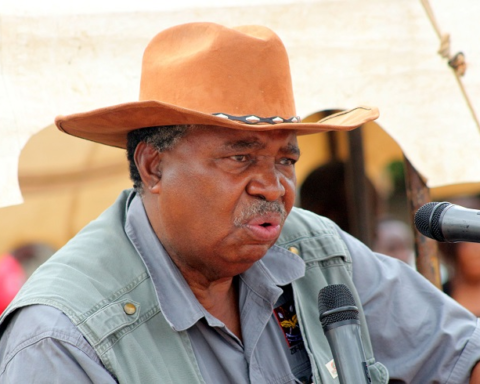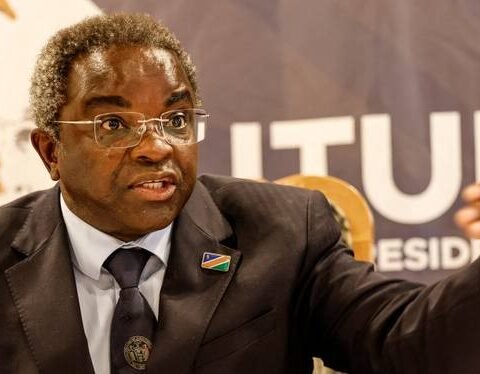The imam had barely made it atop the mosque pulpit to deliver the sermon when intense gunfire rang out and Ebid Salem Mansour knew exactly what was going on.
“We knew that the mosque was under attack by (militants),” he said Saturday, a day after the attack, giving a detailed account of the deadliest assault by extremists against civilians in Egypt’s modern history.
At least 235 people were killed and more than a 100 wounded in Friday’s attack on a mosque filled with worshipers in the troubled region of northern Sinai, a grim milestone in Egypt’s brutal fight against increasingly emboldened militants.
Egyptian warplanes were in action on Saturday over Sinai, according to the military, targeting several vehicles in which some of the culprits of the attack were traveling.
Witnesses speaking to The Associated Press in the Suez Canal city of Ismailia where some of the wounded were taken spoke of horrific scenes during the approximately 20 minutes it took the militants to kill and maim worshipers. They spoke of some jumping out of windows, a stampede in a corridor leading to the washrooms and of children screaming in horror. Some spoke of their narrow escape from a certain death, others of families that lost all or most of their male members.
Mansour, a 38-year-old worker in a nearby salt factory, said he settled in Bir al-Abd, the small town where the attack took place, three years ago to escape the bloodshed and fighting elsewhere in northern Sinai. He suffered two gunshot wounds in the legs.
“Everyone lied down on the floor and kept their heads down. If you raised your head you get shot,” he said. “The shooting was random and hysterical at the beginning and then became more deliberate: Whoever they weren’t sure was dead or still breathing was shot dead.”
“I knew I was injured but I was in a situation that was much scarier than being wounded. I was only seconds away from a certain death,” he said. As the shooting took place, many of the worshipers recited their final prayers, he added.
President Abdel Fattah El-Sissi vowed that the attack “will not go unpunished” and that Egypt would persevere with its war on terrorism. But he did not specify what new steps might be taken. On Saturday, he ordered that a mausoleum be built in memory of the victims of Friday’s attack.
The military and security forces have already been waging a tough campaign against militants in the towns, villages and desert mountains of Sinai, and Egypt has been in a state of emergency since April. Across the country, thousands have been arrested in a crackdown on suspected Islamists as well as against other dissenters and critics, raising concern about human rights violations.
Seeking to spread the violence, militants over the past year have carried out deadly bombings on churches in the capital of Cairo and other cities, killing dozens of Christians. The IS affiliate is also believed to be behind the 2016 downing of a Russian passenger jet that killed 226 people over Sinai.
Friday’s assault was the first major militant attack on a Muslim congregation, and it eclipsed past attacks, even dating back to a previous Islamic militant insurgency in the 1990s.
The militants descended on the Al-Rouda mosque in four off-road vehicles as hundreds worshiped inside. At least a dozen attackers charged in, opening fire randomly, the main cleric at the mosque, Sheikh Mohamed Abdel Fatah Zowraiq, said. He spoke to the AP by phone from a Nile Delta town where he was recuperating from bruises and scratches suffered in the attack.
The militants, according to one witness, stormed the mosque from several doors and as soon as they opened fire, many worshipers started jumping out of windows.
“The small door that leads to the corridor for the wash rooms was about the only one where worshipers rushed to escape,” said a 38-year-old government employee who did not want to be named for fear of retaliation. “There was a stampede. I fell down and then bodies piled up on top of me. I was the only one alive underneath.”
“The shooting was heavy, insane and random,” he recalled. “These are not terrorists. These are not humans.” — AP








